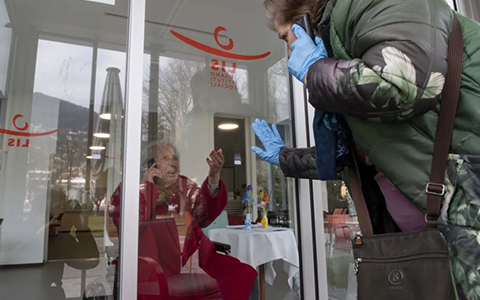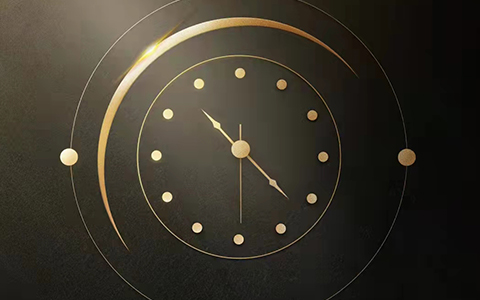 瑞士小记者:中瑞文化差异
瑞士小记者:中瑞文化差异
瑞士小记者|中瑞文化差异 作者:思青,一名在洛桑酒店管理商学院在读的大三学生。今年三月,思青开始在瑞士雷梭勒家族办公室担任行政助理实习生。 本篇文章将以思青的第一人称视角,谈谈她选择来瑞士学习的原因,以及她所发现的中国与瑞士的不同之处。 为什么选择瑞士? 我没有选择北美或英国等其他热门留学国家,而是决定来瑞士上大学,有以下几个原因。 无论是从个人人身安全、经济还是从政治方面来说,瑞士都是一个安全的国家。几乎为零的低犯罪率、严格的枪支管制条例和高水平的受教育公民保证了在瑞士生活、学习和工作的高度人身安全。瑞士拥有的充满活力的文化生活、美丽的风景、高质量的房地产和高质量的教育,为人们提供了高标准的生活。她还拥有稳定的货币、强大的购买力、适度的税收和永久的中立性,这表明该国的经济和政治稳定,是未来投资的最佳选择。 在瑞士,人与人之间有一种天然的信任感。尽管每个人都是素不相识的陌生人,但当他们看到别人需要帮助时,还是会伸出援助之手。也许是因为他们一直生活在这样一个湖光山色的美丽地方,他们往往相信人性的善良,非常热衷于帮助他人,向他们表达善意。 有一次,当我在格林德瓦旅行时,从一辆滑板车上摔下来受伤了。我得到了不同的瑞士人的帮助,包括路人、救援人员、酒店工作人员等等。虽然我受了严重的伤,但在很多人的帮助下,这仍然是一次非常温暖的经历。 此外,由于瑞士在创新能力、高教育水平的劳动力和最先进的科研机构方面的优势,她已被列为全球最具创新能力的国家。她促进了公司、初创企业和大学的合作,进行研究并将研究成果转化为可销售的产品和服务,以加强国家经济的创新能力和力量。瑞士还为初创企业和希望推动创新的年轻人提供了理想的环境。在这里,瑞士提供了良好的基础设施和人脉网络。 瑞士的酒店管理学校也有很高的声誉;例如,洛桑酒店管理商学院(EHL)连续四年在最权威的全球大学排名之一QS(Quacquarelli Symonds)排名中在全球酒店管理大学中排名第一,在瑞士商学院中排名第五。瑞士酒店管理大学被称为 "高级酒店管理人才和职业经理人的摇篮",他们的酒店管理教育提供广泛而实用的课程,采用理论和实践相结合的模式,注重提高学生的综合能力。 总之,这些是我选择在瑞士学习并主修酒店管理的几个主要的原因。希望大家有机会可以来到瑞士,欣赏瑞士的美丽景色,体味这里的水土人情。 中瑞文化差异 我在瑞士学习已经三年了,除去疫情和在其他国家实习的时间,也在瑞士生活了两年。我发现,中国和瑞士的文化差异体现在生活和工作的许多方面。 在饮食方面,中国菜强调菜品的传统美,也强调情怀,注重食物的色、香、味、形、器的和谐。对菜肴的命名、品尝的方式、进食的节奏以及穿插的娱乐活动都有具体要求。而瑞士由于位于许多国家的交界处,融合了多种欧洲文化,融合了法国、德国和意大利的饮食风格。瑞士人注重餐具、原材料、服务,但更注重营养和食材,以及菜肴的品质,这是一种比较理性的饮食观念。 中国人和瑞士人也有不同的心态、思维方式和生活态度。中国人的思维方式最基本的特点是倾向于把事物看成一个整体,具有整体观念。正如老子所说 "道生一,一生二,二生三,三生万物"。相比之下,瑞士或西方文化的显著特点是分析,它倾向于关注个人。一个典型的例子是,传统的中医认为,人体是一个整体,身体的局部问题会得到全面的治疗,而西医则是头痛治头,胃痛治胃。 从工作的角度来看,瑞士人讲究个人主义,企业等级制度扁平化,直接沟通,和“共享领导”。中国人讲究集体主义,企业等级层次分明,以及间接沟通。在中国,工作和生活之间的界限也不像在瑞士那样明确,尤其是现在越来越多的人在家远程工作。例如,在非工作时间,大部分中国人仍然需要尽快回复与工作有关的信息和邮件。相反,瑞士人则尽可能保留个人生活,尽量不受工作的影响,让他们有时间去社交,关注家庭,健身或从事其他爱好。 中国人和瑞士人对节奏的认识也不同。在中国,在快节奏的工作和生活的影响下,我们希望所有的事情都能很快完成。当我们在网上购物时,希望第二天就能收到购买的东西;当我们在餐厅吃饭时,希望在点完餐后菜品很快就能送到桌上;甚至在交通方面,我们希望乘坐高铁、磁悬浮、搭乘直飞的航班。很多人都过着“一万年太久,只争朝夕”的生活。相反,瑞士人喜欢不管干什么事、做什么决定都慢慢来,他们认为瑞士品质需要时间的打磨和深思熟虑的考量,以便做出正确的决定,从而避免错误。 虽然我经历了文化差异的影响,也有过不知所措和胆怯的时候,但在与不同文化背景的人交流和合作中,我不仅更好地了解了自己,也学会了尊重和接受与我们不同的人。在瑞士和酒店管理学院的多元文化学习环境中,我遇到了形形色色的人,交到了可以相伴一生的好朋友,我想这就是来这里学习和生活最重要的意义吧。 Original English Text My name is Siqing, I’m a student currently studying at Ecole Hoteliere de Lausanne. Starting from March this year, I’ve worked at La Soleille Family Office as an administrative assistant intern. For this article, I’m going to talk about why I chose to study in Switzerland and what differences between China and Switzerland I discovered during my stay here. Why Switzerland? Instead of choosing other popular countries such as North America or the UK to study in, I decided to come to Switzerland to attend university for several reasons. Switzerland is a safe country, both personally, financially, and politically. A low crime rate of almost zero, strict gun-control regulations and a high level of educated citizens guarantee a high level of personal security to live, study, and work in Switzerland. With a vibrant cultural life, beautiful scenery, high-quality real estate, and high-quality education, Switzerland offers a high standard of living. It also has a stable currency, strong purchasing power, moderate taxation, and permanent neutrality, which shows the economic and political stability of the country, and it is optimal for future investments. There is a natural sense of trust between people in Switzerland; Although people often do not know each other personally, they would help each other when they see others in need. "Solidarity" is part of Swiss education. Perhaps because they live in such a beautiful place with clear lakes and lush mountains, they tend to believe in the goodness of human nature and are very eager to help others and show them goodwill. Once when I was traveling to Grindelwald, I hurt myself when I fell from a scooter. I received so much help from different Swiss people, including passersby, rescuers, hotel staff, and so on. Although I was badly injured, it was still a very warm experience with a lot of help. Moreover, Switzerland has been ranked the most innovative country globally because of its strengths in innovation capacity, high-educated workforce, and most up-to-date scientific research institutions. It facilitates collaborations of companies, start-ups, and universities to do research and turn research results into marketable products and services to strengthen the innovative ability and power of the economy. Switzerland also offers an ideal environment for start-ups and young people who want to drive innovation. Here, Switzerland provides a good infrastructure and contact opportunities. Swiss hotel management schools are also highly prestigious; for example, Ecole Hoteliere de Lausanne (EHL) has been ranked No. 1 in the QS (Quacquarelli Symonds), one of the essential, authoritative rankings of global universities, Global Hotel Management University for four consecutive years and ranked 5th among Swiss business schools. Swiss hotel management universities are known as the "cradle of senior hotel management personnel and professional managers," Their hotel management education offers a broad and practical education that focuses on improving students overall abilities. In short, these are only a few reasons why I chose to study in Switzerland and major in hotel management. Cultural differences It has been three years since I studied and two years lived in Switzerland, excluding the time of the Covid epidemic and internship. I discovered that the cultural differences between China and Switzerland are reflected in many aspects of life and work. In terms of diet, Chinese cuisine emphasizes the tradition of the beauty of the dishes as well as the sentiment, paying attention to the harmony of the color, aroma, taste, shape, and utensils of the food. There are specific requirements for the naming of dishes, the way of tasting, the rhythm of eating, and the interspersing of entertainment. Switzerland is located at the crossroads of many countries and integrates multiple European cultures with a fusion of French, German, and Italian food styles. Swiss people pay attention to cutlery, materials, and service, but more attention to nutrition, ingredients, and the quality of the food which is a rational concept of diet. Chinese and Swiss also have different mindsets, ways of thinking, and attitudes towards life. The most essential characteristic of the Chinese way of thinking is synthesis, which has a holistic view and tends to look at things as a whole. As Laozi said: “ The Tao produced One; One produced Two; Two produced Three; Three produced All things.” In comparison, the distinctive feature of the Swiss or Western culture is analysis, which tends to focus on the individual. A typical example is that traditional Chinese doctors believe that the human body is a whole and that localized problems in the body will be treated comprehensively, while Western doctors will treat headaches for headaches and stomach pains for stomach pains. From a work perspective, Swiss are about individualism, flat corporate hierarchies, direct communication, and shared leadership. The Chinese are about collectivism, clear hierarchical distinctions, and indirect communication. The boundary between work and life is also not as clear-cut in China as it is in Switzerland, especially now that more people are working remotely from home. For example, during non-working hours, most Chinese still need to respond to work-related messages and emails as soon as possible. Swiss people, on the contrary, preserve their personal life as much as possible without being affected by work, giving them time to socialize, focus on the family, work out or engage in other hobbies. Chinese and Swiss also have different perceptions of pace. In China, under the influence of fast-paced work and life; we want everything to be done very fast, when we make purchases online, we hope to receive the goods the day after; when we eat at a restaurant, we hope the dish will be delivered very soon after order; even for transportation, we want to take high-speed rail, maglev, and direct flights. On the contrary, the Swiss like to take their time in everything they do and everything...
 在瑞士如何考取驾照?
在瑞士如何考取驾照?
在瑞士如何考取驾照? 导语: 来了瑞士并打算定居的人士,如果需要在瑞士开车,就要着手准备获取一张当地驾照。在瑞士考驾照简单来讲一共有五步,依次为:参加急救课程的学习、视力检测、参加驾驶理论考试、参加道路驾驶考试、参加全天讲习训练。3年实习期满后,您就可获得正式驾照了。 获取驾照的各步骤讲解 急救课程 这是一个10小时的必修课程,需要在通过理论考试之前参加。急救课程只能由经瑞士联邦公路局认证的公司开授。您可以选择以下任一方式完成课程: 周一到周五每天2小时周末两天 有效期:6年 费用:150瑞郎 视力检测 在开始驾驶之前,您需要参加视力检测,以检查您是否有适当的视力来驾驶。该检测可以在当地的交管部门附属的任何一家眼镜店进行,而且只需要几分钟时间。 有效期:2年 费用:约20瑞郎 驾驶理论考试 瑞士的驾驶考试包括一门笔试。要参加驾驶理论考试,须向当地道路交通办公室提出申请。为获得参加理论考试的资格,申请人必须证明自己在经过认证的机构上满10小时的急救指导必修课程,并通过了视力检测,因此需要提交急救课程证书和视力检测报告。如果笔试未通过,还可以参加补考,补考不限次数。要学习理论知识,您可以在手机、平板或电脑上下载各类驾考理论应用程序,大多数此类应用程序都有英文版本。通过它们,您可以熟悉准备考试会提出的问题。要进行理论知识训练,有多种“套餐”可供选择。安卓应用程序商店或者苹果商店里的驾考理论应用程序平均价格在19瑞郎左右。 在纳沙泰尔,理论考试每周二和周三都有,可用英语进行。 有效期:2年 费用:40瑞郎(管理费)+19瑞郎(应用程序费)+35瑞郎(学员证) 学员证 申请人成功通过理论考试后,就会颁发一个学员证。持有学员证后,可以在有资质的教练或符合陪练要求的朋友陪同下,上路练习驾驶。 申请学员证需要提交以下文件: 身份证明 两张护照彩色照片 一份最近的(少于2年的)验光报告 急救课程证明 有效期:2年 费用:35瑞郎 交通安全意识课程 申请人获得学员证后,就可以开始8小时的交通安全意识理论必修课了。该课程会为您介绍一些最常见的交通事故及其原因,让您“敏感”起来。在纳沙泰尔州,您在收到学员证时,还会一同收到一个证书,在完成8个小时的交通安全意识课程学习后,驾校将会在证书上盖章。该课程可以在驾驶训练期间完成。 有效期:2年 费用:120瑞郎 驾驶训练 训练时建议由驾驶教练带您陪练,他将教您在瑞士开车的技巧,并带您走正式驾驶考试时使用的道路。 不过,您也可以在朋友或家人的陪同下进行驾驶训练,陪同人员必须年满23岁及以上,且拥有驾照至少三年,车后部还必须贴有L型车贴。L型车贴可以在大多数超市和加油站买到,价格不超过10瑞郎,可以是塑料的,也可以是贴纸或磁铁的。 费用:约100瑞郎/小时(教练陪练) 道路驾驶考试 参加道路驾驶考试必须年满18周岁并持有有效的学员证。 申请人将被测试在真实道路上驾驶、泊车和操纵车辆的能力。 考试时必须提交以下文件: 身份证明(护照、居留证或身份证) 学员证 车辆注册文件 未满20周岁者在考试前必须有不少于12个月的驾驶经验。 考试未通过: 若两次都未能通过道路驾驶考试,则不能再次参加驾驶考试,直到驾驶教练提供该考生已完成驾驶培训的证明。 三次以上没有通过驾驶考试者,将被转到心理医师处,由其确定该考生在精神方面是否适合驾驶,以及是否可以再次参加考试。 费用:55瑞郎 实习期驾照 通过道路驾驶考试后,驾驶者将获得有效期三年的实习期驾照。同时,实习期驾照持有者必须在6个月内参加为期一天的讲习训练。未能做到这点将导致驾照被吊销,并需要重新开始获取驾照的各步骤。 在这三年里,驾驶者必须严格遵守相关法规。酒驾是绝对不允许的。持实习期驾照开车时,酒精含量必须为零。 在三年实习期间,若驾照被政府部门或警察局撤销,则实习期延长一年。撤销驾照的原因包括超速、不遵守交通规则、饮酒和吸毒。 若第二次被撤销,则实习期驾照将被吊销。经过一年的等待期后,需要通过交通心理学家的测试,才能够从头开始训练。 全天讲习训练 全天讲习训练在一个特殊的道路上进行,您将进行紧急制动、安全距离和滑坡转弯方面的测试。本课程的目的是让您学会如何避免危险和在紧急情况下控制车辆。最后,您将通过模拟的方式了解酒后驾驶的风险。 在讲习训练中心,车辆将由您支配。您只需在登记处说明您想使用自动档或手动档即可。 完成这门额外的驾驶课程后,就可获得终身有效的正式驾照了。正式驾照只有在三年实习期结束时才会颁发。 费用:390瑞郎 全部费用 固定费用:约800瑞郎(理论课程+管理费) 可变费用:根据驾驶课程总节数收取 总费用通常在2000瑞郎左右 Original English Text How to get your driving license? Introduction You will find below the different steps that will allow you to get your Swiss driving license: A. Course: First Aid Instruction B. Eye Test C. Exam: Driving Theory Test D. Course: Road Awareness Theory Courses E. Exam: Practical Examination F. Course: Full-day workshop → After 3 years of trial period, you receive your final driving license. Your license step by step The First Aid Courss This is a compulsory 10-hour course that needs to be taken before passing the theoretical exam. Training for the first aid course can only be carried out by a company that is certified by the Swiss Federal Roads Office. To complete your course, you have 2 options: 2 hours every day from Monday to Friday2 days during the weekend Validity: 6 years Price: 150 CHF Eye Test Before you can start driving, you are required to take a visual test to check if you have the proper sight to drive. This test can be done at any affiliated optician by the local Road Traffic Office and only takes a few minutes. Validity: 2 years Price: Around 20 CHF The Driving Theory Test The Swiss driving test includes a written exam. The application for the theory examination is made at the local Road Traffic Office. In order to qualify to take the theory test, students must prove that they have carried out the compulsory ten hours of first aid instruction with a certified organization and passed the eye test. The applicant needs to provide both certificate for the First Aid course and the eye test. In case of failure, there is always a chance to re-take the test as many time as you wish. To learn the theory, you can download various theory Apps on your mobile phone, tablet or computer most of them are available in English. These Apps provide the same question you will get at the theory exam. The average price for a theory app on the Playstore or the Apple store is around CHF 19.- In Neuchâtel, theory tests can be completed weekly in English every Tuesday and Wednesday. Validity: 2 years Price: 40 CHF (Admin. costs) + 19 CHF (App cost) + 35 CHF (student’s driving permit) Provisional driving license A learners permit is issued once the applicant has successfully passed the theory test. This permit allows you to have supervised driving lessons with a certified instructor or an acquaintance. The followings documents are required: Proof of identity Two color passport photographs A recent (less than 2 years old) certificate from an optician First aid course certificate Validity: 2 years Price: 35 CHF Road awareness courses Once the applicant has received their learners permit, they can begin the compulsory eight hours of theory covering road traffic awareness. This is an introduction to “sensitize” you to the most common accident causes and situations. In Neuchâtel canton, you will receive a certificate along with the learners permit that will be stamped by the driving school once the eight hours have been completed. This course can be completed during the driving practicing period. Validity: 2 years Price: 120 CHF Practicing To practice, it is advised to take lessons with a driving instructor as he will teach the student how to properly drive in Switzerland. The instructor uses the official roads that will be used during the exam which is a significant advantage. However, you can also drive with friend or family but you must be accompanied by someone aged 23 and over who has had a driving license for at least three years, and must have an L sticker on the back of the car. This can be bought from most supermarkets and petrol stations for less than 10 CHF and can be in plastic, a sticker or a magnet. Price: Around 100 CHF/h (with instructor) The practical driving test The practical examination is open to those 18 and above and holders of a valid learners permit. The applicant is tested on their ability to drive in traffic, park and maneuver the vehicle. The following documents must be presented at the test: Proof of identity (passport, residence permit or identity card) Learners permit Registration documents of the vehicle Anyone under the age of 20 must have at least 12 months of driving experience before taking the test. Exam failure: Anyone who fails their practical driving test twice cannot take the driving test again until a driving instructor provides an attestation that the person has completed their driving training. A person who fails their driving test more than three times will be referred to a psychologist who will determine if they are mentally fit to drive and whether they may have another attempt. Price: 55 CHF Temporary Driving License Once the practical driving test has been passed, the driver will receive a probationary driving license valid for three years. During this period the driver must attend one-day workshop that should be taken within six months. Failure to do so will cause you to lose your license and restart all over again. During the 3 years the driver must follow thoroughly the rules. Zero tolerance for alcohol – drinking and driving. You must have 0.00% when driving with the probationary driving license. During this period of 3 years, if the driving license is withdrawn by the authorities or the police, the probationary period is extended by one year. The causes or reasons of withdrawal of license include speeding, non respect of traffic rules, alcohol and drugs consumption. If your license is withdrawn for a second time, your probationary license is cancelled. After a one-year waiting period, you will have to pass a test with a traffic psychologist before you can consider starting your training from the beginning. Full day workshop This day will take place on a special track where you will test: emergency braking, safe distance and slippery turn exercises. The aim of this course is that you learn how to avoid and better control dangerous situations. Finally, you will be introduced to the risks of drinking and driving through a simulation. Vehicles will be at your disposal at the center. You just have to specify at the registration if you want to do it in automatic or manual. Once the person has completed the additional driving course, they will rec...

 瑞士新冠疫情危机管理获专家好评
瑞士新冠疫情危机管理获专家好评
 瑞士小记者:中瑞文化差异
瑞士小记者:中瑞文化差异
 “冬”去“夏”来:瑞士2022夏令时开始
“冬”去“夏”来:瑞士2022夏令时开始
 在瑞士如何考取驾照?
在瑞士如何考取驾照?